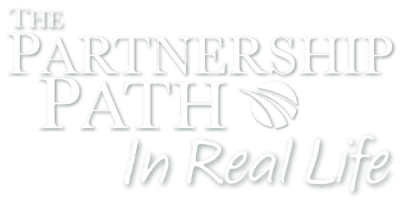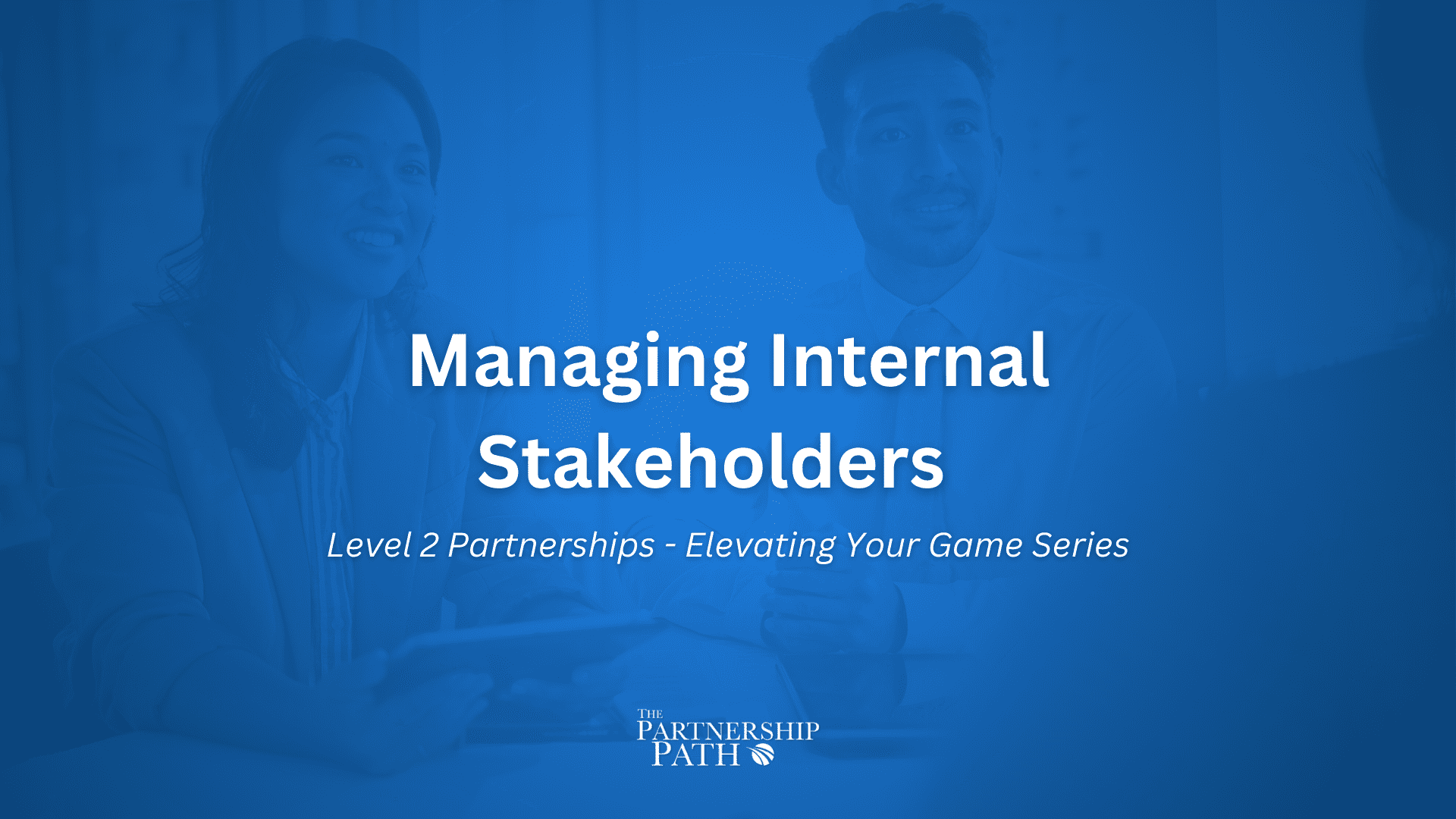Eric Straalman at VertiGIS on Co-Marketing with Partners
Episode Summary
In this episode of the “Partnership Path”, Eric Straalman, a veteran with over 30 years of experience in partner management offers practical advice on the value of working with reseller and implementation partners, the importance of understanding local markets, and how to create effective co-marketing strategies. His insights come from a wealth of experience in the technology field, and he shares a clear path to building strong partnerships that drive mutual success. Whether you’re new to managing partners or looking to level up your co-marketing game, this podcast delivers invaluable lessons from the trenches.
Transcript
John (00:00)
Well, good morning, good afternoon, good evening, Eric. It’s great to have you here on the podcast. I’m so thankful for you coming on the podcast with us. And I’m anxious to hear what you have to say about our topic today. Before we do that though, I want to give you a chance to introduce yourself to our listeners. Give us a little bit of background on who you are and what you do and how long you’ve been working with partners.
Eric (00:23)
Yeah, good morning, John, to you. Good afternoon for me. My name is Eric Slom. I work for a company and software company called VertiGIS. We’re building solutions on top of a technology which is called GIS technology, Geographical Information Systems. I’m in this business, actually, my whole life. And about 30 years as a partner manager.
John (00:28)
Yeah.
Eric (00:53)
not only at VertiGIS, but also at other companies I had that role. I’m located in Switzerland and yeah, I’m a dad of three adult children left the house. So that’s me.
John (01:09)
Excellent. So in your career, 30 years, that’s a long time working with partners. I love having people like you on the show because we have lots of people that listen who are really new to this concept of working with partner. And so having someone like you who can give some sage advice of, look, I’ve tried this, I’ve tried that, I’ve tried this, and here’s what works best. That’s exactly what we’re looking for on this show. So I’m so glad that you’re here. Is there any particular
Eric (01:13)
That’s a long time. Yeah.
I hope I can contribute, yeah, cool.
John (01:38)
special kinds of partners that you normally work with or that you have experience with.
Eric (01:44)
Well, we distinguish actually between two types of partners and then focusing on those. The most important for us are the reseller type of partners, the partners that are knocking doors, you know, they are knowing their market, they push the products from us in their market. So that are say the majority of our partners that we have to manage. On the other hand, we also have what we call implementation partners. And these partners,
John (01:51)
Okay?
Eric (02:14)
They might not have a sales organization, but they deliver. They deliver in projects. And if they deliver in project, we hope that they take our software with them and then implement that software at the customer. So that are the two that we distinguish. Yeah. Yeah.
John (02:29)
Excellent.
Okay, perfect. Yeah, you know, in that European market, right, having local partners who know not just the industry, but actually know their customers better. We see that super prevalent. Yeah.
Eric (02:47)
That’s really key. I mean, why do we do, why do we work through partners? It’s because they know their market best. They speak the language to start with. So it’s really almost a must to work through partners in these kinds of countries. Yeah, absolutely.
John (02:54)
That’s right. That’s right.
Yeah. Yeah.
Yeah, love it. Well, listen, the topic today is about co -marketing with partners, which is super relevant, especially for those reseller types of partners. And so this is really our opportunity to just to start with, Tony and I just did this episode where we talked a little bit about how it should work. I mean, that’s a little bit of what Tony and I do. And so I’d love to hear from you, like what resonated out of what Tony and I talked about.
Eric (03:10)
Yep.
Yep.
John (03:33)
in terms of how you think about co -marketing with partners.
Eric (03:37)
Well, I listened to it and yeah, a lot of things that were addressed resonate or are applied in our organization as well. So we talked, we heard or I heard a lot about the content that needs to be provided to partners. That’s exactly where we put a lot of efforts in. So our products needs to be described, our products needs to be, you know,
made available to partners that they can use it in front of their customers, where the products are such, and I think that’s a little bit of switch. I’m 30 years in business where in the past we were talking about functionality, what can the product do, where today we much more focus on what does it help the customer. So what’s the real value of the person or the company that’s receiving or going to use that software?
John (04:19)
Yeah. Yeah.
Eric (04:31)
So yeah, I heard a lot of interesting and familiar things in the podcast that you had with Tony and exactly that’s what we do. We make that available to our partners, but they have to localize it. So they really take it as a base. So as a start, not that they have to write it again, no, it’s something that they can really use, but it’s about the details then that they have to bring in that.
in that marketing material that applies for that specific country. Yeah.
John (05:04)
Yeah, it’s an interesting dynamic, right? Especially when we’re working with reseller partners, that they have to balance this marketing the company versus marketing the solution, right? And from my perspective, because of the relationship you talk about, the company marketing they do is more about them, less about you. But…
Eric (05:30)
Yeah. Yeah.
John (05:32)
then they need to kind of integrate the solution that you bring to the table into that as well. And that can be challenging sometimes, right? Finding that balance between your brand and their brand versus your solution and what they add on the solution. How do you help partners kind of find that balance?
Eric (05:53)
Well, I think, you know, in our business is pretty clear that we are marketing our products. We do not expect from our partners that they market our brand. We are not expecting to see a lot of vertigo in their market appearing. But of course, we want to see a lot of products resold or how do you say that? Yeah, sold by the result sold by that partner. And so it.
John (06:03)
Right. Yeah.
Yeah, resold. Yeah. Yeah.
Eric (06:23)
If we are talking to partners and we do some, say, common activities, like on a trade show, I don’t care if we see Vertigis there because I’m there. In that moment, I represent the company that you see there. But if it is really about the daily marketing and the daily business, it’s really about the product. And we don’t expect from the partner to brand Vertigis. We don’t expect that from them to do. So, yeah.
John (06:48)
Yeah. Yeah. If we, if we put that into the language that Tony and I talked about, right, we talked about those three phases of marketing, right? First, do they even know who you are at all? Then second, they know who you are, but they’re not necessarily sure you have something that they need. And then the third phase is they know who you are. They know you have something that they might need, but now they’re trying to figure out, is it something that actually really matters to them in the, in where they’re at in their business?
Eric (06:56)
Yeah.
John (07:18)
And so if I hear that right, you’re saying from your perspective, you guys take care of number one, and then you and the partner kind of work together on numbers two and three. Yeah.
Eric (07:29)
Yeah. So what I always tell my partners is I don’t want them to build up their name, you know, in the technology or in the products per se that we deliver to them. I want them to be seen as the expert in the domain for which we deliver the software. So we are in the utility space, for instance, and I would like to see my partners known if somebody from an electricity company thinks I need to
I need to support, I need to solve this problem that they think about, that’s the company I heard from. They are skilled, or they have the knowledge to help me and the software is then coming after that. So it’s really getting away from functions, getting away from technology, solving problems with customers and make sure that the company that is reselling our products is known.
as to one that can really bring that value to the customer. Yeah. That’s, yeah.
John (08:30)
Yeah. So, Eric, what’s your, before you started working with partners, like what was your, what’s your educational background? What, are you a marketer?
Eric (08:41)
No, I’m not. I’m actually, you know, from a technical background, I’m a surveyor. Yeah, I’m a surveyor. I started in 87 with surveying, you know, so really, you know, outside surveying, not marketing surveying, marketing, no, it’s really, you know, working outside and that type of job that changed so quickly that I…
John (08:46)
Okay. Yeah, yeah. All right.
Yeah, yeah, right, right.
Eric (09:10)
finally was working with computers and at the end I landed up at a software company here in Switzerland and with several meanwhile, but, and took that job for partner management. Yeah. I love to do that international work. It’s not just working with partners. It’s also dealing with their, how do you say that? Their way of doing business. It’s very different.
John (09:24)
Yeah. So that I.
Yeah.
Right? Right.
Eric (09:40)
And that’s making it very, very attractive, this kind of jobs, yeah, working with partners.
John (09:45)
I asked that question really for a really specific purpose, which is I think we have lots of people that are in partner management jobs who are a little bit intimidated by marketing, right? They kind of think, like I didn’t grow up in marketing. I don’t know how to do marketing. And that should be somebody else’s job kind of thought, right? And I wanted to find out for you because you speak like someone who knows a lot about marketing. And yet…
That’s not your background. And so I want to deliver that message that you can be a surveyor who then becomes a software guy who becomes a channel guy and understand marketing. It’s not super complicated. It’s more about just getting familiar with it and then working with your partners on it.
Eric (10:16)
No, not at all.
I think, you know, the way you market the materials that you produce, you need marketeers for. And today we are talking about different ways of bringing that information to a customer that doesn’t have to be a brochure anymore as in the past. So there are various ways, but what I think it’s important that these marketeers get the information from the market. What do they need to market? And that’s also the role that we play as a partner manager that we know.
from the different countries, what we have to market, what is important for a customer. And that information needs to go to a marketeer. I can understand that the marketeer itself doesn’t understand that business in that detail. He or she knows very well how to shape that information or bring that information to a customer. And the content, and not only by me, but also by my partners, the content needs to come from them.
for me and that’s how it works in our organization. Yeah.
John (11:39)
So let’s get super tactical for just a minute. Walk me through when you’ve got either a new partner to your company or just a new partner for you. And you think that there needs to be more marketing done in order to help them build enough pipeline to really sell as much software as you’re hoping they’re going to. What are the steps you take? Kind of how do you approach that partner?
from a marketing perspective, right? What are the things that you do? What advice would you have for someone who needs to do that?
Eric (12:14)
Well, you know, I can just speak from the practice that we have. If we have an interest in a partner or a partner has interest in us, we first do a business planning and then a fixed part of the business planning is the market plan. So the marketing plan, it’s really important that we get a good view on that market, maybe a new market and the role that this partner can play in that market. And then we together with
the partner will determine what needs to be done for them to be successful in their country. And then the majority of all the things that they need we have, I can say. We have that from a content perspective, other partners are using it. So the majority of all the things that you hear, we have it.
John (12:56)
Yeah. Meaning from a content perspective, right? You mean you have, yeah. Yeah.
Eric (13:09)
And they have access to it. They become access to it. If we agree on the business planning, et cetera, they become access to it. And then they have to put it into their, you know, their, how do you say that layout? The partner needs to localize it. So that’s the way it works. So we have a partner portal, a partner portal that every partner gets access to and all the information that they need in order to become successful in the market can be found there.
But in the business plan, we keep really track on what’s going to happen that year, marketing -wise. We are going to visit these conferences. We are going to participate in this trade show. We are going to do a roadshow this. We are going to do this. We are going to do that. So that’s really determined as part of the business planning that we have done with them. And then we execute on that.
John (13:43)
Yeah. Yeah.
Yeah, you and I started our careers about the same time. I started in 1987 as well. And so whatever age we want to call that, that you and I are, things in marketing, as you said, have changed a lot, right? And so one of the things I wonder about is how are you helping partners with that social element?
Eric (14:13)
Okay.
Yeah. Yeah.
Yeah.
John (14:34)
of marketing today, right? We hear lots of stuff about putting content on LinkedIn or TikTok or, you know, whatever. How are you finding that part of marketing today?
Eric (14:46)
Well, it’s also new for me and we grown up in another time. So honestly speaking, it’s a bit challenging for me as well, but therefore I have the marketeers. So they know exactly how to do it. And we help our partners also if they have the need for being out or if they have the need to be supported for that part, we will help them. So we say, we give some guidance in what we would like to see written in these kinds of, you know,
John (14:51)
You
Eric (15:16)
LinkedIn posts or whatever. It’s not, how can I say, totally left to the partner to, you know, what he is going to write about us, to write about our products. So we give them some guidance, but at the end, it’s in particular the speed that makes it, how do you say that, so different to the past. You know, I’m at the conference and one hour later,
John (15:41)
Yeah. Yeah.
Eric (15:45)
You know, you inform the market, you inform your community about your presence there, your experiences there. So the speed in which you are posting these, these information, it’s so different than in the past where you had time and you could think it over once more and another time and then, okay, you decide to publish it. And today it’s within an hour, it needs to be correct and stand out in the world.
John (16:13)
Yeah, or even real time, right? I see people walking around at a conference with their cell phone up, right? You know, videoing what’s going on right now. Yeah. Yeah.
Eric (16:16)
Yeah, yeah, yeah, yeah, exactly. Yeah, yeah, yeah, yeah, yeah, exactly. So yeah, we I am personally also helped by the marketeers to, to, yeah, to set up these, these posts. And the only thing that they want from me, again, is the content, maybe a picture, you know, from the conference or, you know, whatever. And then one hour later, I see myself, okay, yeah.
John (16:38)
Right. Yeah.
No, I was there. Yeah.
Eric (16:44)
that has been posted. cool. Yeah, I was there or partner look. Here we are. So yeah, that’s, that’s, that’s completely new. And we helped the partners in that respect as well if needed. Yeah. But yeah, it’s, it’s, it’s so much faster everything, you know, the, the information needs to get out soon, immediately, you know, live, if possible. And that’s, that’s,
John (16:49)
Yeah, yeah.
Yeah, excellent.
Yeah. And the key is to make sure that as an organization, you’ve got a library of things and a set of kind of guidance that you can provide to the partner to help them be successful in the way they market. Yeah.
Eric (17:14)
That’s today. Yep.
Yeah, exactly. So it’s the content, it’s the guidance of what we expect from them. And of course, the challenge is also to keep it current, to really keep that content current. So that’s a lot of work and should not be forgotten. And then also inform partners that things have been changed so that they also adapt these changes.
John (17:39)
Yeah, that’s right. Yeah.
Eric (17:52)
in their marketing material. So yeah, it’s an organization, I would say. You need to keep an eye on it. But today’s possibilities, that they get the content or get access to the content that they need. That’s how we do it. If they are a partner, they have access to every information that we have for them. Yeah. Yeah.
John (17:52)
That’s right.
Perfect. Well, Eric, we try to keep these episodes nice and short. We’re at time. So I just want to say thank you so much for coming on the podcast today. I really appreciate not just the fact that you did it, but the level of experience and knowledge that you bring to the table. It’s super helpful. And I know the community really appreciates it. So thank you so much for being here.
Eric (18:41)
My pleasure, John. Thank you.
Key Takeaways
- Know Your Partners: Eric emphasizes the importance of understanding the differences between reseller and implementation partners. Resellers drive sales, while implementation partners focus on delivering solutions.
- Localization is Key: When working with international partners, it’s vital to provide localized marketing content, as partners know their markets better than anyone else.
- Focus on Customer Value: Modern marketing is less about product features and more about the value it delivers to the customer, a shift from the traditional approach.



